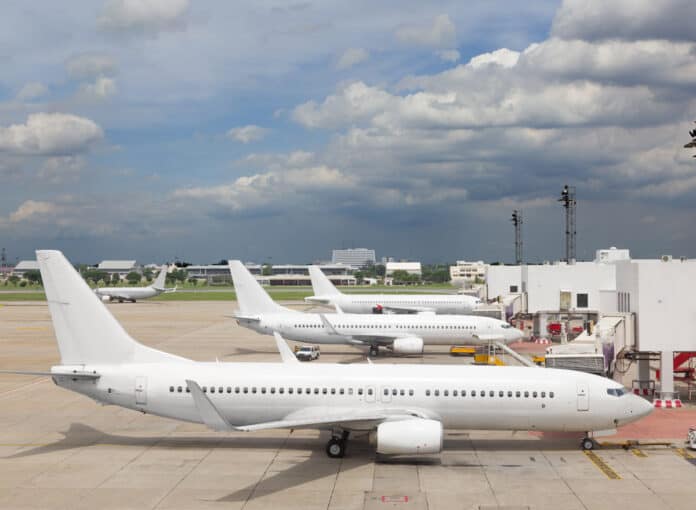The Federal Foreign Office has extended the worldwide travel warning announced on 17 March until 14 June. Most observers had already expected the government to extend the travel warning. This continues an unprecedented situation: for the first time a worldwide travel warning is in effect in Germany, and many other countries are also warning against travel. But what are the consequences for people planning a trip or who are abroad?
Table of Contents
Travel warning is not a ban: the concrete consequences
Many confuse a travel warning with a travel ban. The Federal Foreign Office constantly issues travel warnings for different countries and regions, but everyone is free to travel there. These warnings are a service of the ministry and are intended to inform tourists and business travellers of the risks. Since the government has extended the travel warning, the addressees should take these warnings seriously. The Ministry has good reasons for such a step. In this case it justifies it with weighty arguments. It refers to the massive restrictions on international air traffic. It also highlights the fact that target countries can implement serious restrictions such as a curfew without warning and with immediate effect. The past few weeks have shown what consequences this has for travellers. Many tourists were stuck in the travel regions and did not know how to get home. Only with special flights and a great deal of effort did the Foreign Office succeed in getting the travellers back to Germany.
Choose travel destinations wisely
The travel warning does not restrict freedom of travel. However, tourists and business travelers should keep in mind that many target countries restrict this freedom. The toughest measure is an entry ban. Other countries allow foreigners to enter the country, but prescribe a two-week quarantine. Others require a medical certificate or a corona test at the airport. Even if travel countries are liberal, caution is advisable: the situation can change every day. If the number of infections increases rapidly, each country affected will react quickly and may impose a shutdown or a lockdown.
Trip booked: What does the travel warning mean?
Anyone with a booking before June 14 can cancel their trip free of charge, as the official travel warning has now been extended. You will get your money back. You should not be unsettled by the current media reports about travel vouchers instead of refunds. The German government is striving for this regulation, but the EU Commission, as the level responsible for this facet of consumer protection, refers to the companies’ obligation to repay. There is nothing to suggest that it will soon deviate from this course. In practice, some consumers are likely to have difficulties in reclaiming their money. This is the case with travel agencies, hotels, airlines and similar businesses that are running out of money.
Travel from abroad to Germany remains restricted
The German government follows the recommendation of the EU Commission of 8 April 2020, in order to slow the spread of the corona virus and extended the existing travel restrictions for all non-essential travel from third countries to Germany. All EU countries and Germany will continue to apply the entry restrictions into the Schengen area decided by the EU until 15 May 2020. Travel to Germany is therefore still not possible. The only exceptions are:
Nationals of EU states as well as their family members and nationals from Great Britain, Iceland, Liechtenstein, Norway and Switzerland as well as their family members for transit to their home country or country of residence or for their usual stay/residence in Germany.
Third-country nationals with a long-term right of residence in an EU state and the aforementioned states (residence title or long-term visa, e.g. for a study stay or to take up work), provided they return to their place of habitual residence
Third-country nationals with so-called “essential tasks or needs”, as defined in the Decision:
health workers and researchers, carers, cross-border commuters, transport personnel in goods traffic and other necessary areas, diplomats, staff of international organisations, military personnel, humanitarian aid workers in so far as they are acting in the exercise of their functions, transit passengers, passengers travelling for compelling family reasons, persons in need of international protection or for other humanitarian reasons
Government extends travel warning: uncertain outlook for tourists and the travel industry
Many tourists are eagerly waiting for the opportunity to spend their holidays everywhere again. Many would like to have at least medium-term planning security. When will the Federal Foreign Office take back its travel warning? When will international travel return to normal? At the same time, the travel industry is increasing the pressure on politicians because numerous companies such as travel agencies are on the verge of bankruptcy. Those responsible are in a quandary; loosening up could lead to a renewed rise in the number of infections. At present, nobody can predict when and to what extent the travel warnings and travel restrictions will end. There are many indications that tourism is normalising as a result of individual agreements between countries within the EU. The governments of Italy and Austria, for example, are talking to the German government with the aim of reaching appropriate agreements. Nothing has been decided yet, and the same applies to the worldwide travel warning. This depends on the development of the corona pandemic. The Federal Foreign Office regularly reviews the travel warning; a decision on a possible extension is expected in June.



